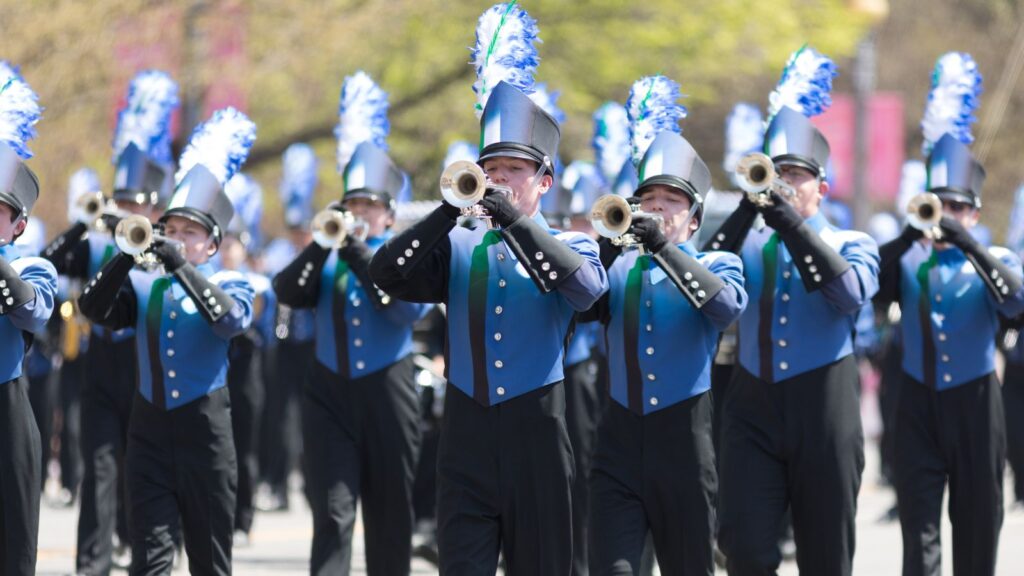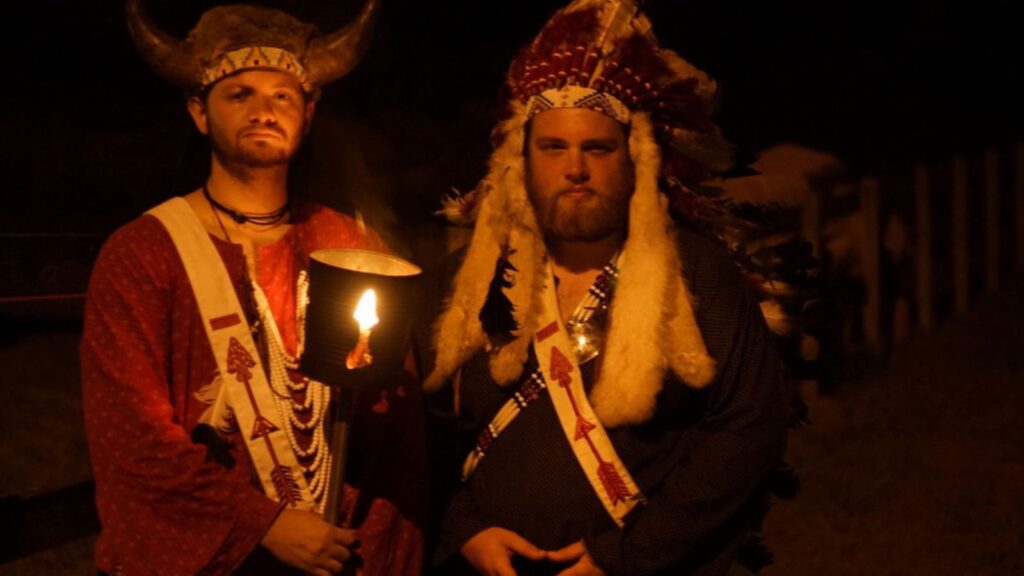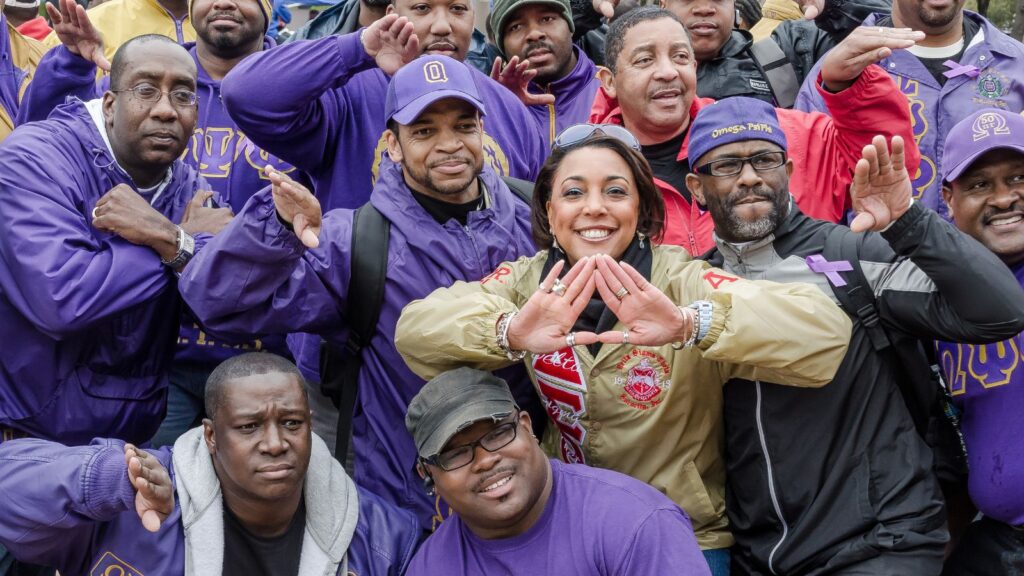In our daily lives, we often come across groups that exhibit cult-like behavior without actually being cults. These groups can range from fitness communities to corporate cultures, all of which share certain characteristics such as extreme devotion, a strong sense of belonging, and, sometimes, a lack of tolerance for dissent. Let’s take a look at 20 of these groups and how they operate.
K-Pop Fandoms

K-pop fandoms are another example of groups with cult-like devotion. Fans of these groups often exhibit extreme loyalty, knowing every detail about their favorite stars and participating in fan activities that require significant time and emotional investment.
Disney Enthusiasts

Disney has a massive fanbase of adults in the US, but some enthusiasts take their devotion to extreme levels. These fans usually visit Disney parks frequently, consume only Disney-related media, and immerse themselves fully in Disney culture, which can be seen as a way of life rather than just entertainment.
Diet and Lifestyle Communities

Communities centered around specific diets or lifestyles, such as veganism or paleo diets, can also exhibit cult-like behaviors, and members often evangelize their lifestyle and can be intolerant of differing views or practices.
Fan Clubs

Fan clubs for celebrities or specific entertainment franchises can develop cult-like characteristics. The intense devotion and the creation of a strong group identity around a common interest can lead to behaviors that mirror those found in actual cults.
Extreme Sports Enthusiasts

Enthusiasts of extreme sports, such as skydiving or rock climbing, often form tight-knit communities with their own rituals and norms. The shared experiences and the high stakes of their activities can create a strong sense of belonging and exclusivity.
Marching Bands

High school and college marching bands can create a highly exclusive and committed community. Members often develop a strong identity tied to the band, with intense practices and performances fostering a deep sense of camaraderie and belonging.
Nonprofits and Startups

Nonprofits and startups can also exhibit cult-like behaviors, especially when they are driven by passionate, charismatic founders. These organizations often have a small, tight-knit group of leaders who enforce a specific culture, sometimes at the expense of employee well-being. This phenomenon, known as Founder’s Syndrome, can lead to a toxic work environment where dissent is discouraged.
Corporate Cultures

Corporate cultures can sometimes resemble cults, particularly when they emphasize unwavering loyalty and a unique set of values that employees are expected to adopt wholeheartedly. Companies like Amazon are known for their intense internal culture, where employees are indoctrinated with leadership principles and expected to exhibit extreme dedication to the company's goal.
Multi-Level Marketing (MLM) Companies

MLMs are notorious for their cult-like characteristics, and they often lure individuals with promises of financial freedom and a supportive community, only to pressure them into relentless recruiting and product purchasing. This structure can create a manipulative environment that preys on the vulnerabilities of its members.
Thermomix and Other MLM Products

Products like Thermomix, sold through MLM structures, foster communities of users who are fiercely loyal and often try to recruit others into their circle. The sense of exclusivity and the pressure to conform to the group’s buying habits are hallmarks of these organizations.
Fitness Communities

Fitness communities like CrossFit and Peloton can be extremely engaging. CrossFit, for example, promotes a community-driven approach to health, making its members highly enthusiastic about sharing their experiences and recruiting others. Peloton users often schedule their lives around their workouts, showcasing a level of commitment that borders on obsessive.
The Order of the Arrow

Within the Boy Scouts of America, The Order of the Arrow functions almost like a smaller cult. It has its own rituals and ceremonies, creating a distinct and tight-knit subgroup within the larger organization.
Fan Communities

Fandoms for shows like “My Little Pony” can also operate with a cult-like fervor. The “Bronies” community, in particular, is known for its deep commitment and often intense participation in fan conventions and online forums.
Company Cults

Some companies develop a cult-like atmosphere by enforcing strict cultural norms and negatively sanctioning dissent. Employees in these environments may find it difficult to express differing opinions without facing passive-aggressive repercussions, leading to a homogeneous and sometimes toxic workplace.
Nontraditional Religious Groups

While not always harmful, some nontraditional religious groups can exhibit cult-like behaviors. These groups often require strict adherence to their beliefs and practices, which sometimes involves isolating members from outside influences.
Self-Help Groups

Certain self-help groups can also operate like cults, especially when they require participants to follow a specific regimen or philosophy without question. The pressure to conform and the promise of personal transformation can create a highly insular community, and sometimes, so-called “self-help gurus” can take advantage of vulnerable people who are seeking some form of help or guidance in their lives.
Fraternities and Sororities

Fraternities and Sororities in colleges can sometimes exhibit cult-like characteristics, and the sense of brotherhood or sisterhood, combined with rituals, exclusive events, and a strong emphasis on loyalty, can create a highly cohesive, toxic, and insular group.
Sports Teams

Sports teams, especially at the high school and college levels, can foster a cult-like environment. The intense training, shared goals, and strong team identity can lead to a community where members are expected to prioritize the team above all else.
Political Movements

Certain political movements can also display cult-like behaviors, such as expectations of extreme loyalty to the cause, a charismatic leader, and an “us versus them” mentality, which can create a highly polarized and insular group dynamic.
Environmental and Animal Rights Groups

Some environmental and animal rights groups can operate with a fervor that resembles a cult. The passionate commitment to the cause and the pressure to adopt certain lifestyles and beliefs can create a highly cohesive and sometimes exclusive community. This can include a sense of pressure to engage in public activism in order to demonstrate one's commitment to “the cause.”
Avoiding Cult-Like Situations

Recognizing the signs of cult-like behavior in everyday groups can help individuals maintain their independence and protect their well-being. Groups that discourage dissent, demand extreme loyalty, or isolate members from outside influences should be approached with caution. It's important to engage with communities that respect individuality and promote healthy, open interactions. Understanding the dynamics of these groups can help you navigate social situations more effectively and avoid the potential pitfalls of becoming overly enmeshed in any one community.
30 Traditional Sayings That Are Now Considered Offensive by Woke Culture

30 Traditional Sayings That Are Now Considered Offensive by Woke Culture
21 Habits Often Associated With Having a Lower Social Status

21 Habits Often Associated With Having a Lower Social Status
25 Social Issues Gen Z are Determined to Cancel

